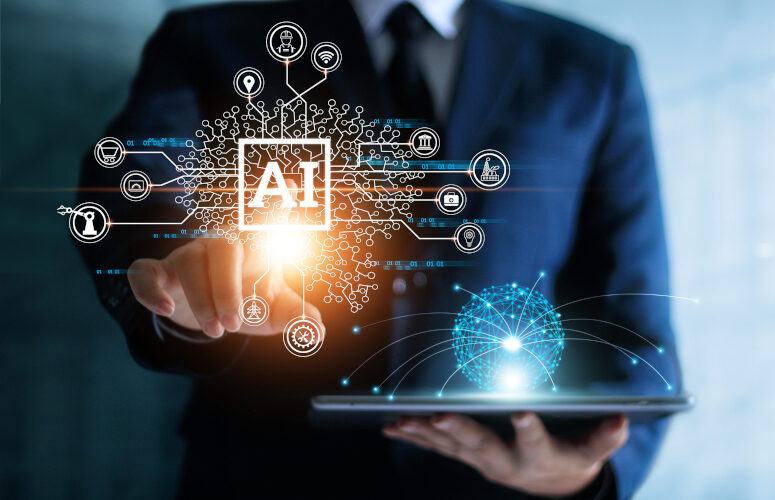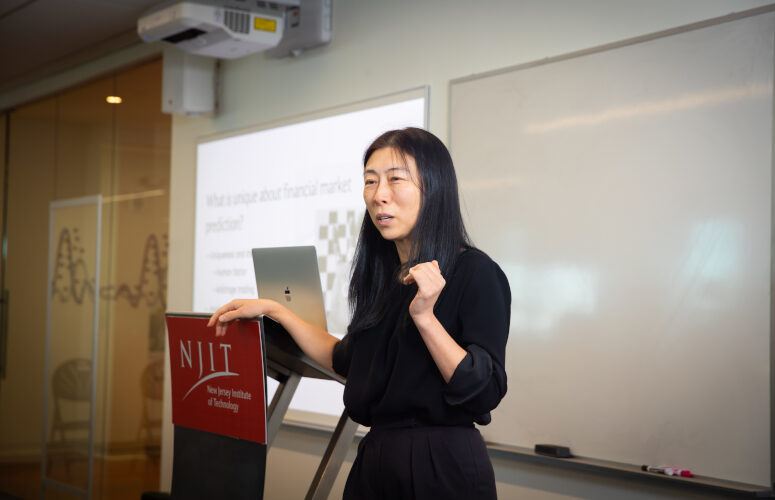
Generative AI to Have Big Biz Impact, but Execs Not Ready to Adopt Yet
On Apr 24, 2023Generative AI is here, and executives expect it to have an enormous impact on business, but most say they are unprepared for immediate adoption, according to a new survey by KPMG U.S.
Almost two-thirds (65%) of the 225 U.S. executives surveyed in the last two weeks of March believe generative AI will have a high or extremely high impact on their organization in the next three to five years, far above every other emerging technology. Yet nearly the same percentage, 60%, say they are still a year or two away from implementing their first generative AI solution.
While generative AI has rapidly entered the vocabulary of executives and boards given the accessibility of the technology, organizations are challenged to keep pace. Fewer than half of respondents say they have the right technology, talent, and governance in place to successfully implement generative AI. Respondents anticipate spending the next 6-12 months focused on increasing their understanding of how generative AI works, evaluating internal capabilities, and investing in generative AI tools.
“CEOs and board members must personally invest time in understanding generative AI, and they must demand the same of their teams,” said Atif Zaim, national managing principal, advisory, at KPMG U.S.
Companies often find it difficult to get the value they want from emerging technologies when they take a siloed approach. Yet 68% of respondents have not appointed a central person or team to organize their response to the emergence of generative AI. For the time being, the IT function is leading the charge.
The respondents, who are from businesses with revenue of $1 billion and above, cite cost and lack of clear business case as the two highest barriers to implementing generative AI. Cyber security and data privacy are currently top-of-mind concerns for leaders, at 81% and 78% respectively.
“Generative AI has the potential to be the most disruptive technology we’ve seen to date,” said Steve Chase, U.S. consulting leader, KPMG U.S. “It will fundamentally change business models, providing new opportunities for growth, efficiency, and innovation, while surfacing significant risks and challenges. For leaders to harness the enormous potential of generative AI, they must set a clear strategy that quickly moves their organization from experimentation into industrialization.”
A transformative technology and competitive differentiator
According to the KPMG survey, 77% percent of executives believe that generative AI will have a bigger impact on broader society in the next three to five years than any other emerging technology.
Executives expect the impact to be highest in enterprise-wide areas — driving innovation, customer success, tech investment, and sales and marketing.
When it comes to the impact of generative AI on the enterprise level, 78% of respondents say that it will have a high or extremely high impact on driving innovation, followed closely by technology investment at 74%, and customer success at 73%. And they believe it will have the greatest transformational impact on research and development, product development, and operations — also the functions where the largest number of respondents are currently exploring the implementation of generative AI.
Industries diverge
Executive prioritization of generative AI varies significantly by sector. Most of executives (71%) in technology, media, telecommunications (TMT) and 67% in healthcare and life sciences (HCLS) feel they have appropriately prioritized generative AI, while only 30% in consumer and retail and 37% in industrial manufacturing say that it is a priority.
Furthermore, 60% of respondents in TMT say that researching generative AI applications is a high or extremely high priority in the next 3-6 months, the highest of all industries.
Respondents from TMT and financial services are the most likely to say that the recent focus on tools such as ChatGPT have had a largeimpact on their digital and innovation strategies.
Maintaining trust through risk management and responsible AI
The majority of executives (72%) agree that generative AI can play a critical role in building and maintaining stakeholder trust, but almost half (45%) say that generative AI can have a negative impact on their organization’s trust if the appropriate risk management tools are not implemented.
Most executives (79%) also believe that organizations that leverage generative AI will have a competitive advantage in risk management compared with their peers.
Along with their overall strategies for generative AI, organizations are still in the early stages of designing and implementing risk and responsible use programs, despite the expected magnitude of the impact generative AI will have on their organizations and customers.
Only 6% of organizations report having a dedicated team in place for evaluating risk and implementing risk mitigation strategies as part of their overall generative AI strategy. Another 25% of organizations are putting risk management strategies in place, but it is a work in progress.
Meanwhile, nearly half (47%) say they are in the initial stages of evaluating risk and mitigation strategies, and nearly a quarter (22%) have not yet started evaluating risk and mitigation strategies.
Similarly, only 5% report having a mature responsible AI governance program in place, and nearly half (49%) say they intend to stand one up but have not done so yet. Another 19% say an AI governance program is in process or has been partially implemented. Interestingly, more than a quarter, (27%), say they do not currently see a need or have not reached enough scale to merit a responsible AI governance program.
The critical talent questions
Respondents largely seem to believe that we are heading into a new era for the workforce that combines work from human+ generative AI. Executives are most optimistic about the opportunities to increase productivity (72%), change the way people work (66%) and encourage innovation (62%). However, they are also mindful of the potential negative implications.
Almost 4 in 10 executives (39%) believe that generative AI could lead to decreased social interactions and human connections with coworkers that may have negative impacts on the workforce. Another 32% report a concern that they will see increased mental health issues among their workforce due to the stress of job loss and uncertainty about the future.
Companies are focused on a hybrid approach of hiring and capability building among their teams across industry and function.
To access more business news, visit NJB News Now.
Related Articles:





